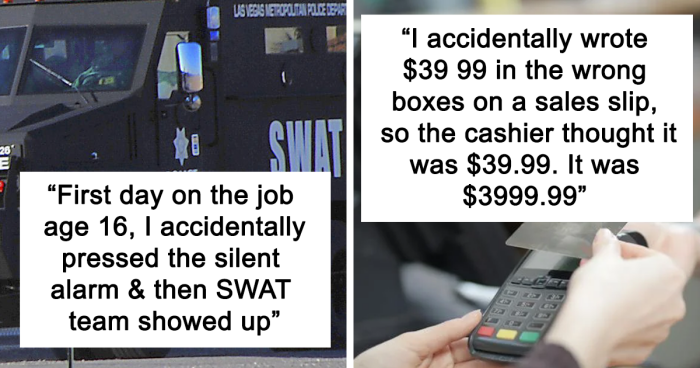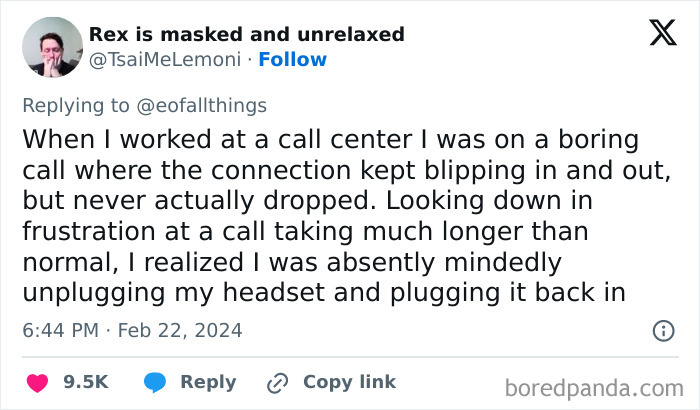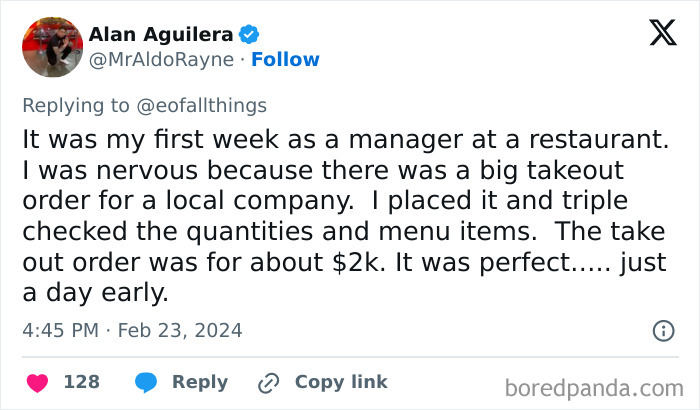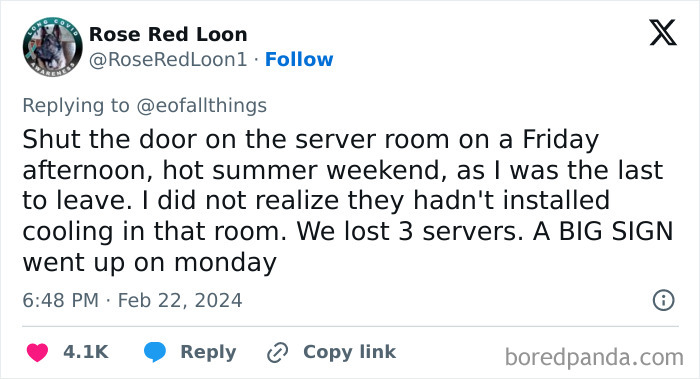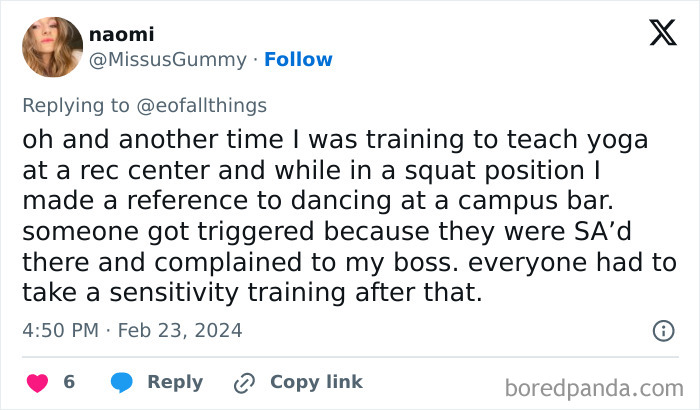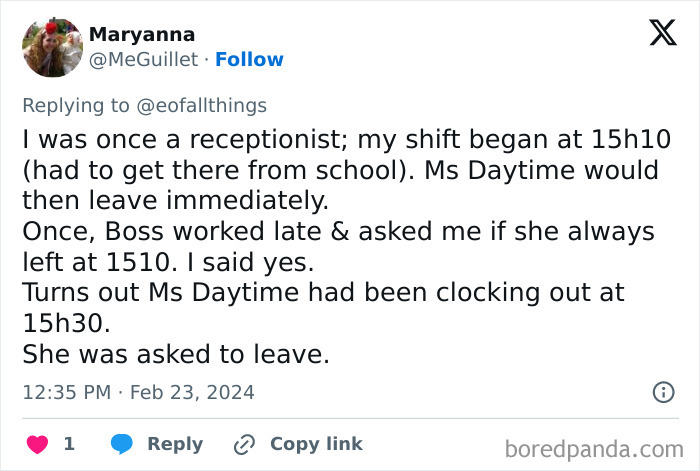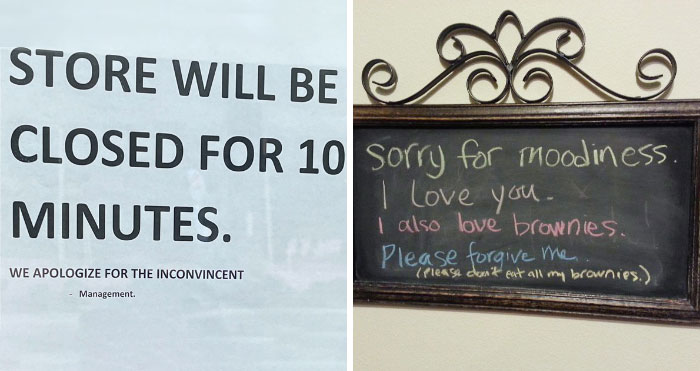In childhood, we’re conditioned to think that mistakes will always get us into trouble. But, throughout the years, we learn that there are varying degrees of mistakes that lead to an even wider variety of consequences. And it’s all very dependent on a lot of things.
So, even if you manage to destroy a very expensive machine at work, nothing might happen or a lot of things can happen. It all depends on the manager, the boss, the insurance, the age of the machine and loads of other things.
But it’s because of how we were conditioned, the mistakes might still haunt us. And not too long ago, folks on X were sharing these stories.
This post may include affiliate links.
So, Twitter user @eofallthings recently asked people on X to share the worst mistakes they’ve made while at work. This was prompted by the idea that OP finds comfort in knowing that she’s not alone in making mistakes, and that she could do worse—like lodging a ship in the Suez Canal. And folks delivered.
And let’s just say mistakes were made. Some mistakes could be very exactly valued at a specific number, like this woman who marked a set of $3,999 patio furniture for sale at $39.99 (see, punctuation matters!) and someone definitely got lucky.
But some mistakes you can’t put a price on. Like printing out the wrong article for students to study and then realizing it’s all about sexual accessories.
Would probably taste better after overnight in the fridge. A lot of things do.
So, what causes mistakes in the workplace? There’s a number of ways to explain this.
One of the key reasons behind mistakes is stress. Stress can force people to be less attentive or shut down altogether. And it’s the manager’s responsibility to make sure that there are no stressors in the job that would throw a spanner in the works.
Just like stress, there are also other bodily reactions to circumstances, like fatigue. If an employee doesn’t get enough sleep or is overworked, this can hinder performance, memory lapses and decreased awareness, among other things.
And as things pile up, this could lead to burnout, which means less mental or physical energy to deal with work. And this sort of “I can’t even” dynamic can lead to more than just errors—but accidents and injuries, even.
That's actually terrifying. I gather you weren't fired? Punished? Admonished? Put on unpaid leave? Or does everybody just laugh off something like this?
Multitasking is not too far from any of the reasons mentioned previously. You likely jump between tasks because you need to get more done, and that tires you out—to an extent where 40% of your productivity is gone—which in turn causes even more stress and then you’re overworked and nothing gets done as a result.
Strong believer in politely questioning a cashier if you think they made a mistake in your favor.
Another common one is competency. Companies might have a particular role with particular tasks to be executed, but the employee might not be able to perform them, hence mistakes might be made. This is also true if a company grows and the processes and tasks scale with them—something that the employee should be trained for. So, it’s not just the idea that they lack competence but rather they aren’t empowered.
This also ties into the idea of processes and procedures. At least in accounting, there is a huge difference for specialists between working in a small company or a large corporation, because one is more structured than the other, more focused on, say, processes and not procedures, which can cause a performance gap. The challenge here is that accountants often can’t stop for anything as payrolls and payables are always coming and going, and so the adaptation is tricky.
Assuming it's one of the stores known for offering trade-in games for belly lint, good, F that store, but I hope the lady didn't end up in trouble. Though knowing that store... She probably did. Though could they not contact the info on the pre-order ticket and demand they pay?
Among these structural reasons, there’s also the factor of training. Not providing sufficient training and know-how on how to do a job might lead to getting things done the wrong way (thus embedding errors) as the employees will try to compensate for their lack of training with their own idea of how to do things. That is, however, an easily solvable problem given proper training.
We got shown" Animal Farm" when I was about 5 or 6. I guess it looked like a fun cartoon movie for kids?
While there are many other reasons yet, one more key reason is miscommunication. You can’t do something properly if you’re not instructed properly, or at all. Heck, if there is no process that forces communication within a work task, then it’s all left up to the discretion of the employees or managers to foster communication.
So, what are your thoughts on any of this? Have some mistakes in your arsenal that you wouldn’t be ashamed of sharing? Even if you were, it’s worth doing so because we’re a loving community.
We had a truck driver backing up to the loading ramp of the store I worked at and he managed to hit the building, rip off the rain gutter at his attempt to reposition and then destroy the metal stairs of said loading ramp on his second attempt
I nearly blew up a whole building by switching off a wrong button on an oven in a backery - turned off the flame but not the gas valve, luckily my mistake was noticed right away
Deleted the entire wifi network of a school, put it back in under 10 minutes and nobody really noticed, but my brain likes to bring it up any time I start feeling too confident. :p
I destroyed a pallet of fabric softener by not lowering it in time to miss an AC unit; another time I was lowering a pallet of #10 cans of tomatoes with a pallet of pasta on top of it, and the nails of the tomato pallet pulled out so the pasta and half the tomatoes fell from about 5 feet up
Load More Replies...I nearly blew up a whole building by switching off a wrong button on an oven in a backery - turned off the flame but not the gas valve, luckily my mistake was noticed right away
Deleted the entire wifi network of a school, put it back in under 10 minutes and nobody really noticed, but my brain likes to bring it up any time I start feeling too confident. :p
I destroyed a pallet of fabric softener by not lowering it in time to miss an AC unit; another time I was lowering a pallet of #10 cans of tomatoes with a pallet of pasta on top of it, and the nails of the tomato pallet pulled out so the pasta and half the tomatoes fell from about 5 feet up
Load More Replies...
 Dark Mode
Dark Mode 

 No fees, cancel anytime
No fees, cancel anytime 


